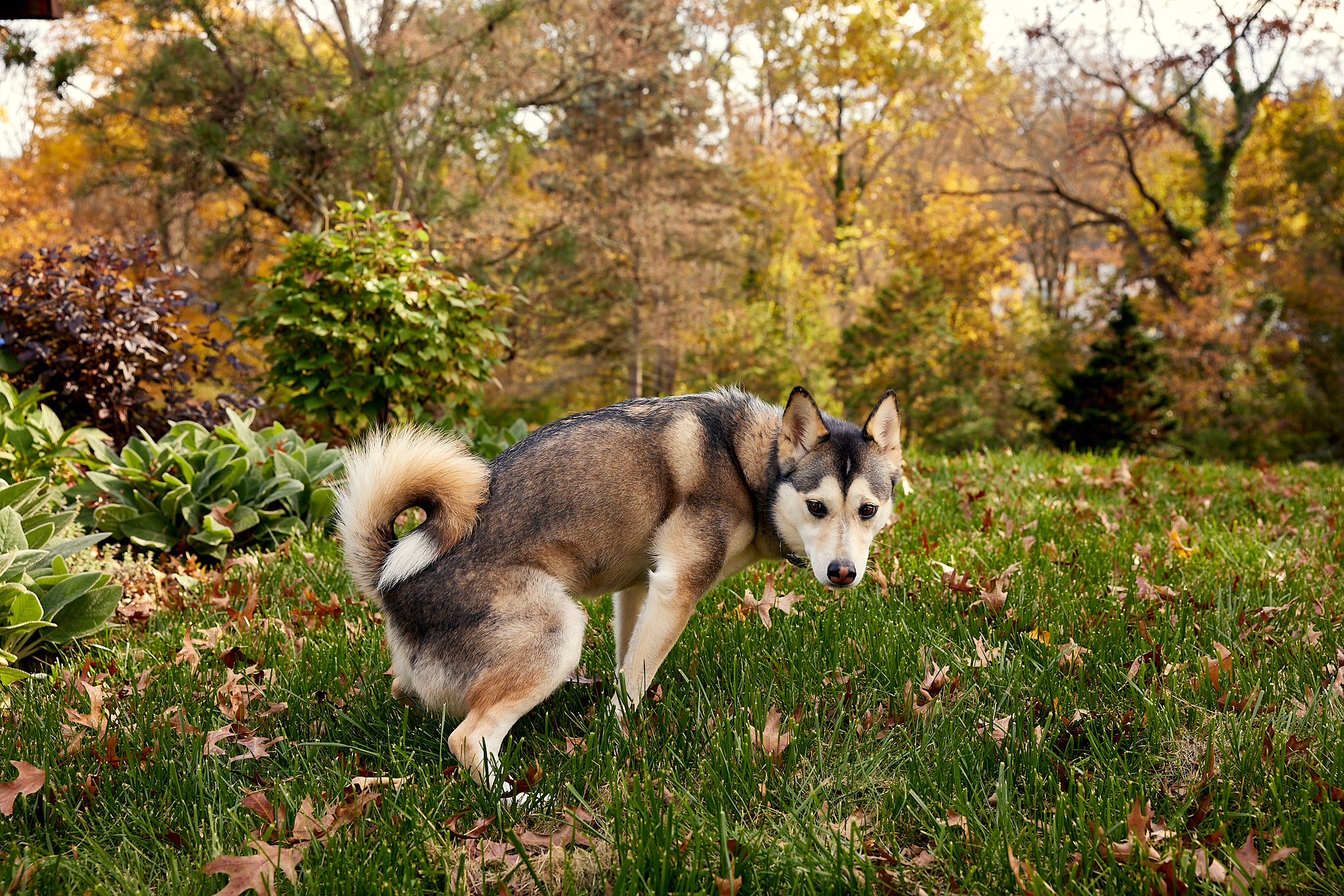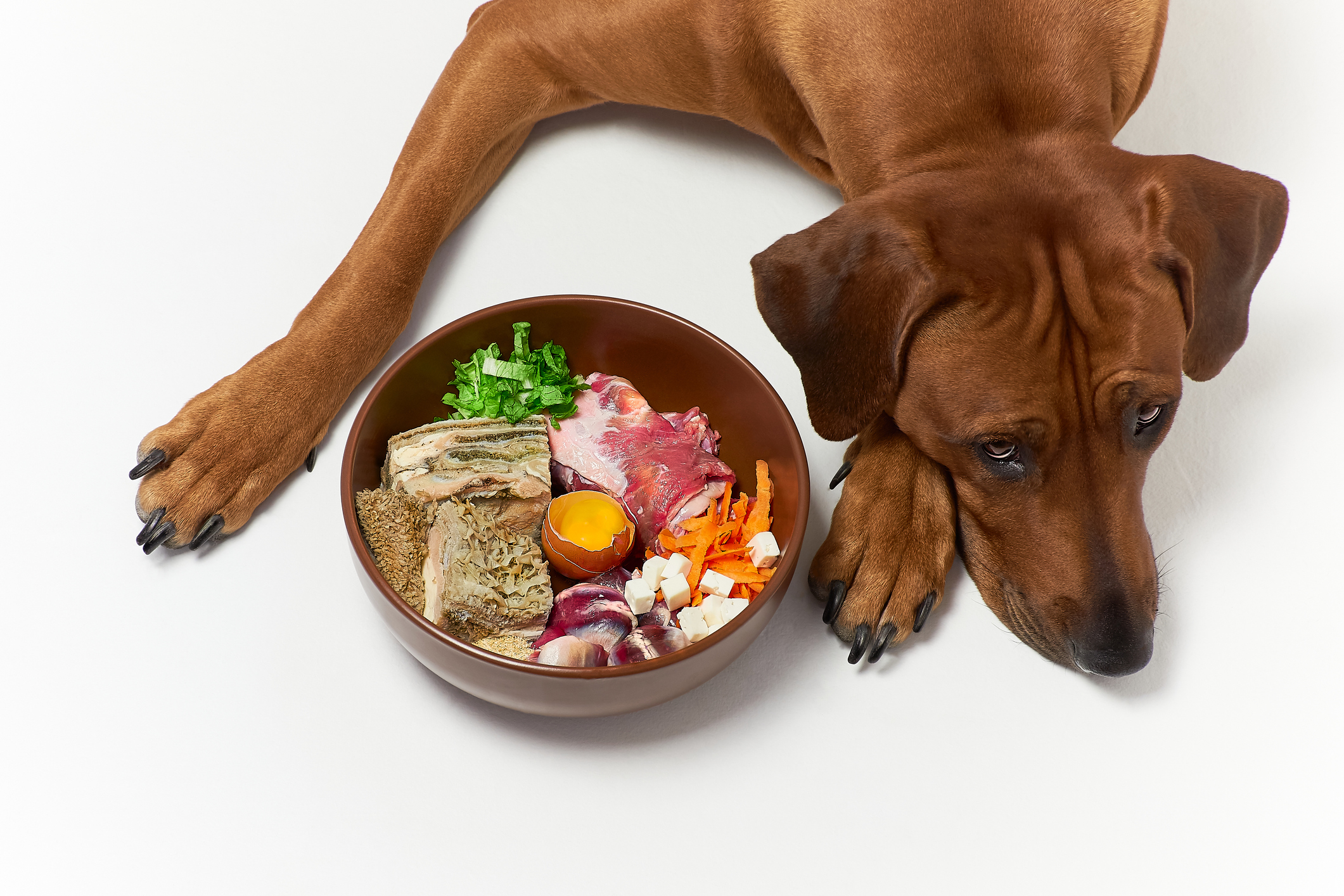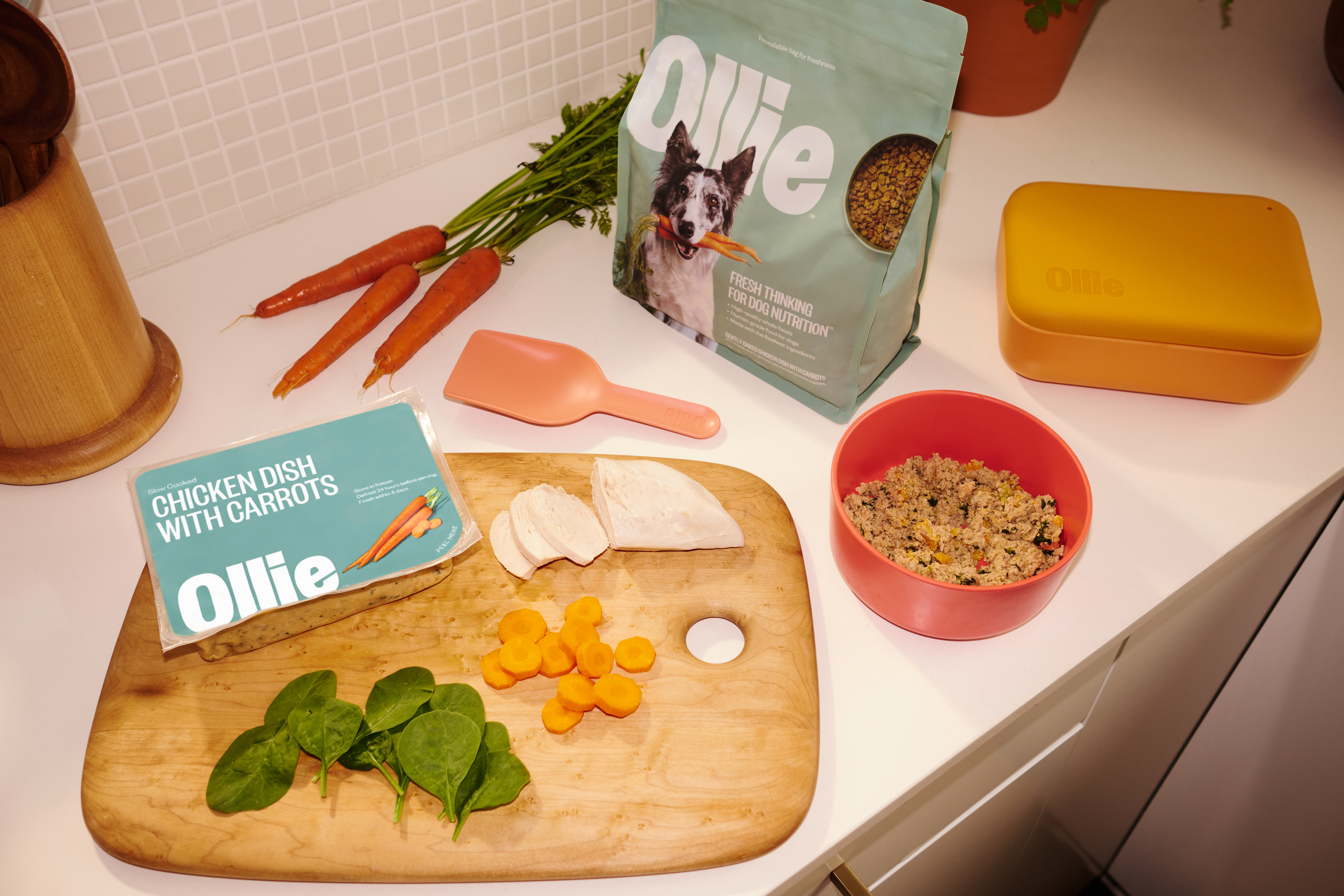Hey Ollie blog readers! We’re offering you an exclusive 60% OFF your starter box! Try now!
If you decided that a global pandemic presented the perfect opportunity to welcome a new puppy into your life—congratulations! Welcome to the rewarding—and sometimes challenging—journey of puppy parenthood. As cuddly and adorable as your new canine companion may be, we know it takes a lot of responsibility, patience, and hard work to add a four-legged friend to your family.
Your puppy’s early development days are critical for establishing a solid foundation, especially when it comes to what and how your dog eats. The decisions you make now can have a lasting impact on your dog’s overall growth and lifelong habits. If you’re stressed about making the right choices for your pup, don’t worry—Ollie can help get you started.

Puppies are different—and here’s why that matters
As you’re probably aware, your puppy is growing very fast. Although dogs may maintain that signature youthful energy for months (or years), their super-young puppy bodies quickly morph into full-on grownups as they undergo a tremendous amount of change in the first year.
“There’s a lot that’s happening to a puppy’s body early on and everything is growing so rapidly—the brain, the heart, their bones,” says Dr. Betsy Miller, DVM, MPH. “It’s a really important time to establish a well-balanced diet to make sure all of those things are developing appropriately. Calorie amounts and the types of nutrients should all take that growth into consideration.”
The food you choose should not only supply the nutrients to support puppy-specific physical growth, it should also benefit his cognitive development and neurological function.
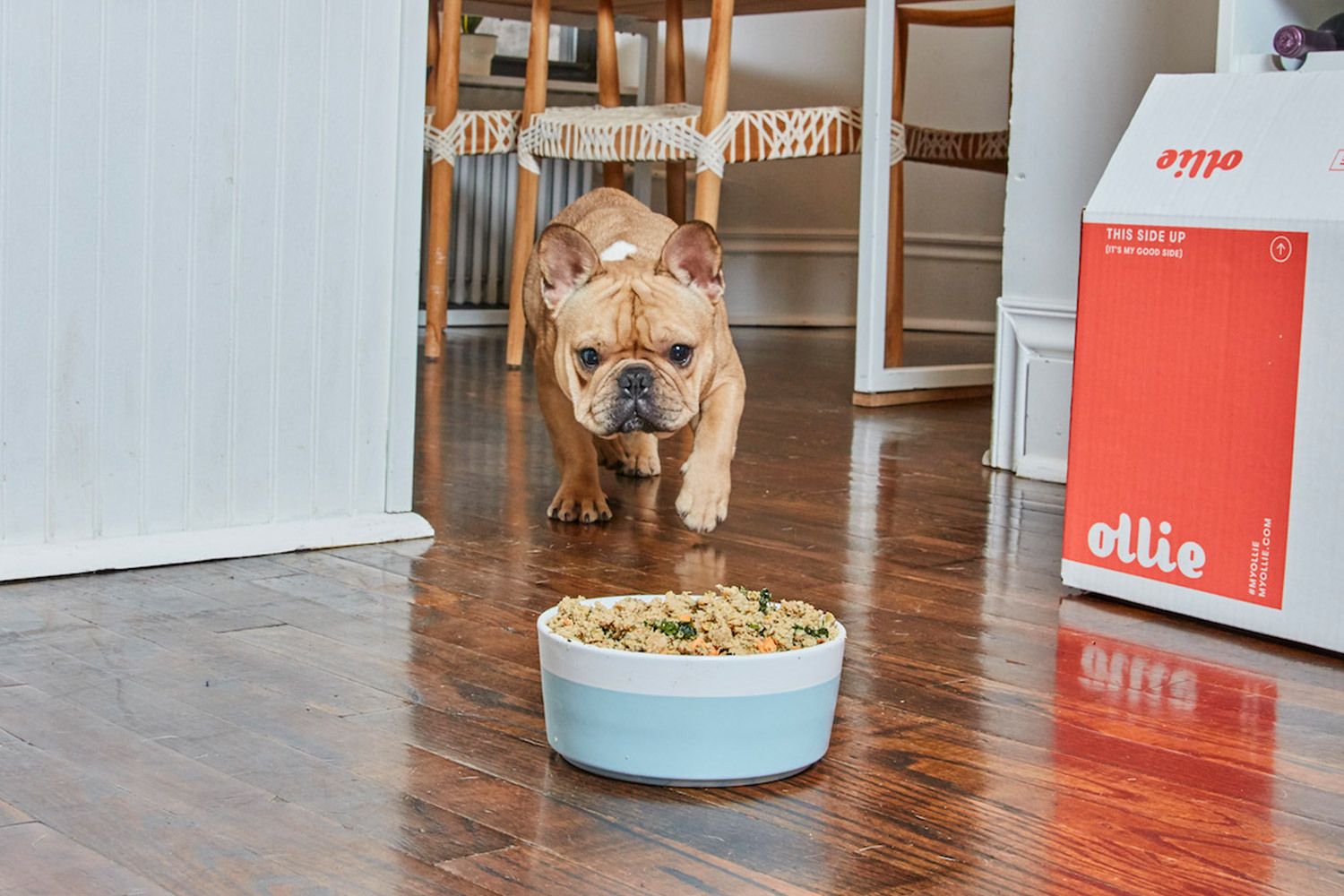
How to choose the right food for your puppy’s needs
Every dog is different, which is why Ollie creates custom meal plans to fit your puppy’s unique profile, taking into account age, breed, weight, activity level, and any allergies. As your puppy develops into an adult dog, you can easily adjust meal plans for weight gain and growth.
As you start to research different food options, there’s one surefire way to feel good about what your dog is eating: Check the ingredients list. Brands marketing a specific “puppy formula” are often using gimmicks to disguise processed dog foods filled with corn syrup, soybean meal, and artificial dyes like Yellow 5.
Ollie’s vet-formulated dog food is filled with high-quality, real meat protein (chicken, turkey, lamb beef) and fresh fruits and vegetables (peas, lentils, blueberries) that provide essential amino acids, lean protein, fiber, phytonutrients, and more. The complete and balanced meals support all the top priorities for your puppy: healthy brain and cognitive development and continued muscle and bone growth. Ollie also takes the guesswork out of how much to feed your dog by providing precise portions.
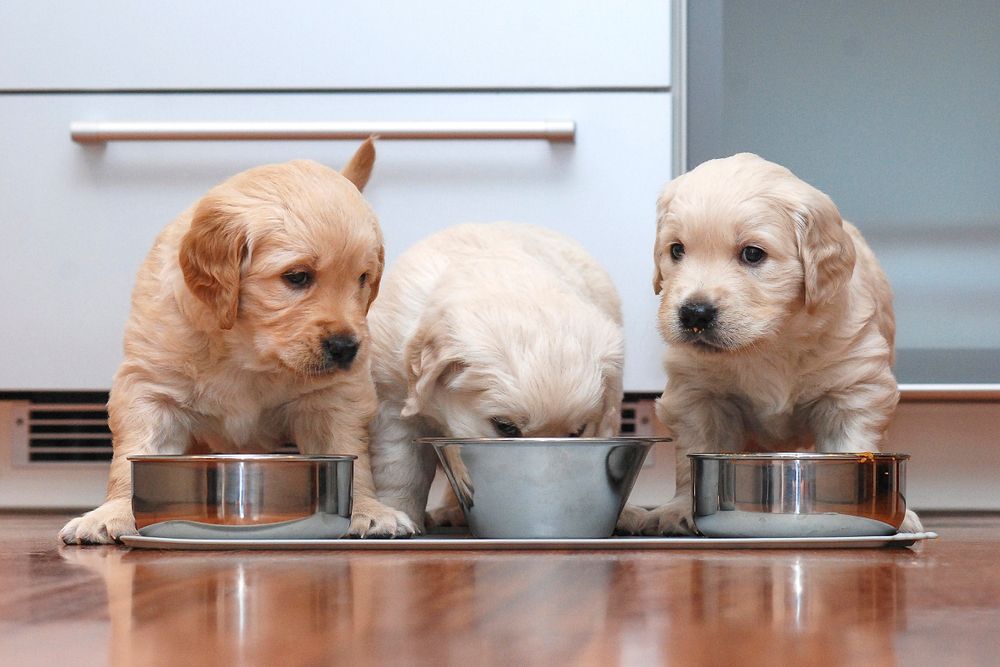
Why to establish a feeding routine
Just like children need structure and routine, it helps with a dog’s general behavior and physical training to get accustomed to consistency. A feeding routine establishes security and predictability for your puppy and helps create future healthy habits. Routine meals can also make house training easier as dogs generally need to relieve themselves a few minutes after eating.
Check with your veterinarian, but most puppies should be fed 2–4 times per day to keep maintain blood sugar levels. “Dogs enjoy this routine and it makes food changes easier later in life,” explains Dr. Vee Ringer, DVM, Medical Director at Vets Pets. Setting up a “meal feed” schedule versus “free feeding”—leaving food out to let your dog regulate his own intake—can also help prevent growth issues. “For large and giant breed puppies, it has been shown that restrictive feedings rather than ad lib feedings reduce the risk of development orthopedic issues or early onset osteoarthritis that can be seen in those breeds,” Ringer says.
Plus, frequent eating can provide helpful intel to see if something is wrong or your dog doesn’t like certain flavors, explains Miller. “If you have them eat three set meals, you’re able to tell a lot quicker if their appetite has gone down, or if they’re not eating for some reason, because you have more frequent opportunities to notice,” she says. “You’re able to pick up on appetite issues and act on it much sooner.”
You know who else could benefit from structure? You, the puppy parent. During chaotic times (ahem, right now), having a simple solution for feeding your pet means one less thing on your stress list. Ollie’s regular, reliable delivery fits into your schedule, with the ability to change delivery dates and adjust recipes as you go.
Need more guidance? Let us help.
We don’t expect you to know everything about how to feed and raise a new puppy, which is why we’re happy to offer our expertise. As dog parents and vet nutritionists, our Canine Care team can help you get started and set up your own personalized puppy profile. The team is available by phone (844) 886-5543 or email (caninecare@myollie.com) Monday–Friday, 9 a.m. to 7 p.m. EST.
Tell us more about your puppy and we’ll create a unique meal plan to grow with him or her!
Tagged As:

The nutrition your dog needs,
the food they want.

Enjoying our articles? Subscribe our Newsletters and get new articles directly to your inbox
You might also like
3 July 2025
5 MINS READ
How Fresh Food Can Help Your Dog Have Perfect Poops
As a pup parent, you’re likely very familiar with your dog’s bathroom habits. While it may not be the most glamorous part of taking care of your pup, a dog’s stool can be one of the most dir…
by Ollie Pets
3 July 2025
5 MINS READ
Understanding the Risks of Raw Dog Food
When it comes to choosing the right diet for your dog, understanding the full picture is crucial for making an informed decision. In this article, we’ll dig deeper into what defines a raw diet, …
by Ollie Pets
3 July 2025
4 MINS READ
Understanding a Balanced Diet for Your Dog
As a dedicated pet parent, you want to provide the best for your dog, and that starts with their food bowl. We all understand the basics of a balanced diet for ourselves, but what does that look l…
by Ollie Pets





